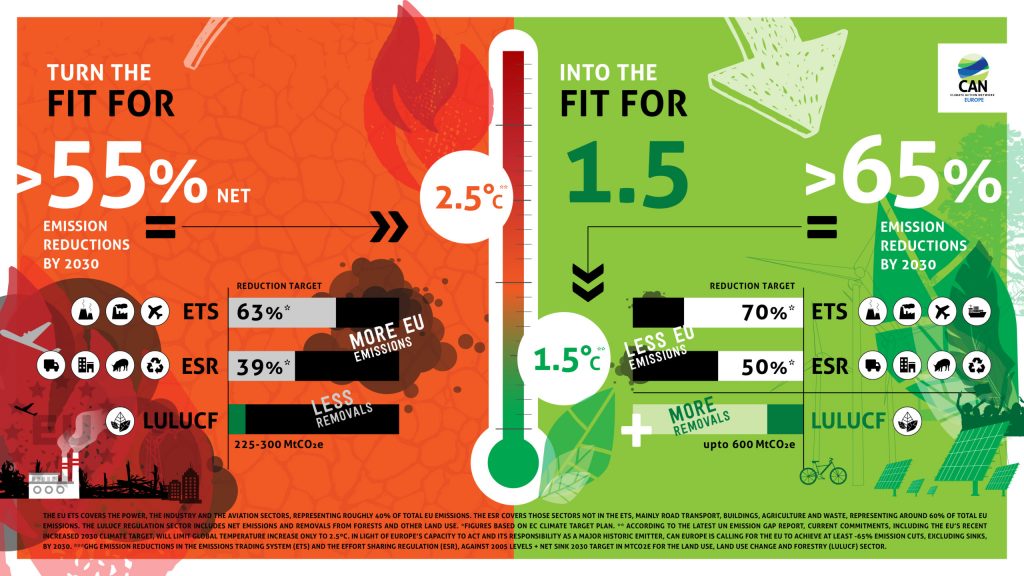CAN Europe recognises the European Commission’s ‘Fit for 55’ climate and energy package as a massive piece of work attempting to tackle dangerous climate change. However, the overall level of ambition needs to be increased for the EU to fulfil its commitment under the Paris Agreement to limit global temperature rise to 1.5°C.
In reaction to the European Commission’s launch of its ‘Fit for 55’ package, CAN Europe calls for the EU to increase the overall level of ambition of climate and energy legislation well beyond the current proposals, if the EU is to fulfil its commitment under the Paris Agreement to limit global temperature rise to 1.5°C.
“While we keep witnessing the devastating impacts of climate change on people’s lives, the environment and our economy, we expect the EU to recognise the urgency to act and live up to the commitments made in the Paris Agreement. To limit temperature rise to 1.5°C, the EU would need to reduce its greenhouse gas emissions by at least 65%. The Commission proposal does increase the target to -58% which is good but this increase is not even halfway what is needed to make the package fit for 1.5 and in line with the Paris Agreement,” commented Wendel Trio, Director of CAN Europe.
“It’s now Member States’ and the European Parliament’s’ roles to improve the different pieces of law and enable the EU to further overshoot the 55% emission reductions target towards -65%. Only with further ambition will the package be turned into a policy framework that will bring us all to the 1.5°C target,” added Wendel Trio.
CAN Europe welcomes the Commission’s proposal to keep national emission reduction targets in the Effort Sharing Regulation (ESR) tackling emissions from road transport, buildings, agriculture and waste, but regrets the absence of similar targets in the proposed energy legislation. It is crucial for national governments to take responsibility for climate action and to ensure the massive transition we are facing will be socially fair and environmentally sound.
Not acting adequately on climate change in particular threatens those most vulnerable in Europe and abroad. However, we must also ensure that climate action supports social justice. CAN Europe hence calls for supporting those measures that take social impacts into account, while ensuring there is no further support for industry to escape from applying the polluter pays principle.
“We need to make sure the transition is just and fair. This includes ensuring all revenues are directed to support climate action, with special attention to those who will suffer the consequences the most, both across the EU and in developing countries. Policies need to take into account social considerations, and not only be driven by a market logic, especially when industries keep being subsidised through the continuation of free pollution permits,” concluded Wendel Trio.

Source
Climate Action Network, press release, 2021-07-14.
Supplier
Share
Renewable Carbon News – Daily Newsletter
Subscribe to our daily email newsletter – the world's leading newsletter on renewable materials and chemicals










